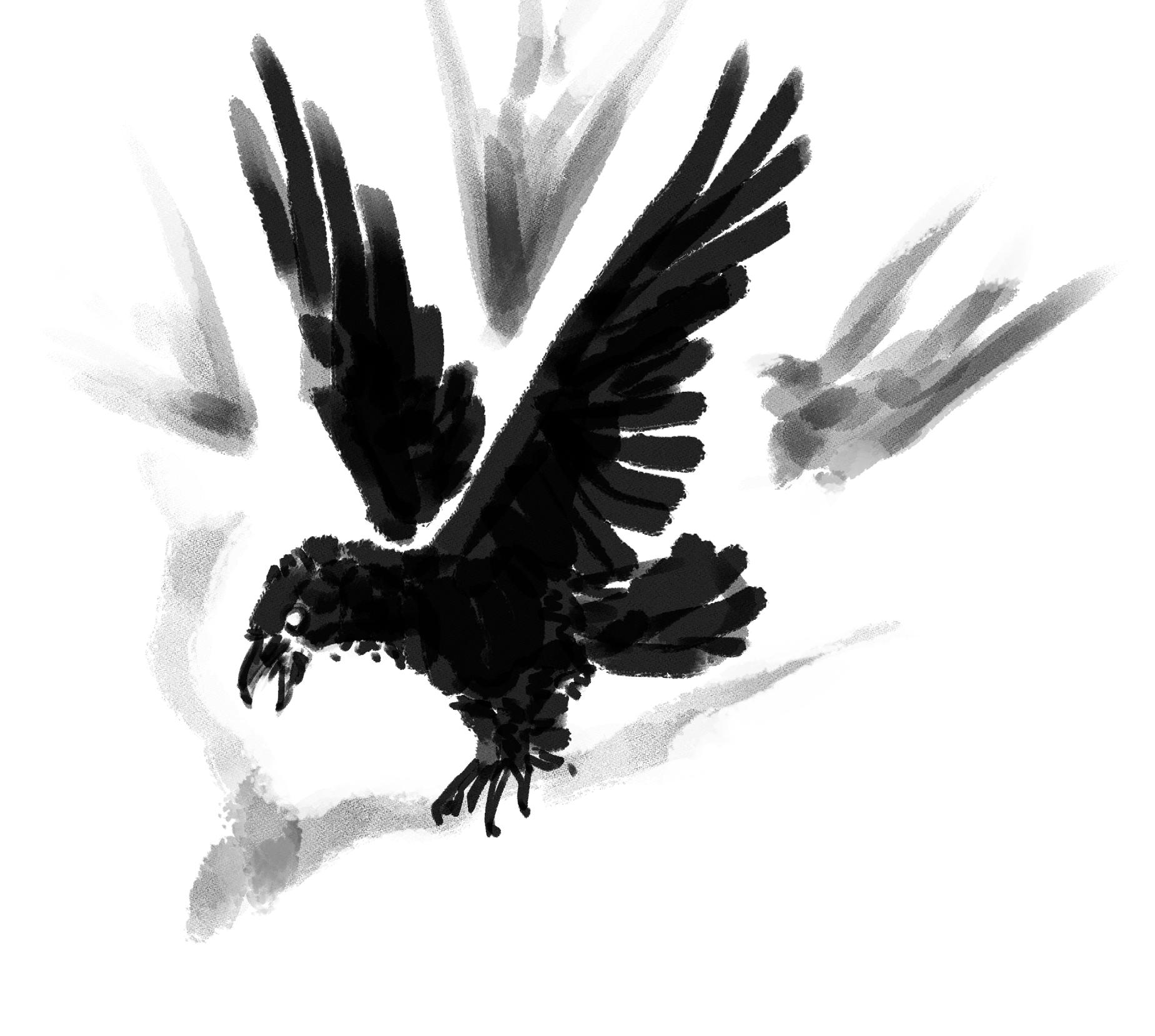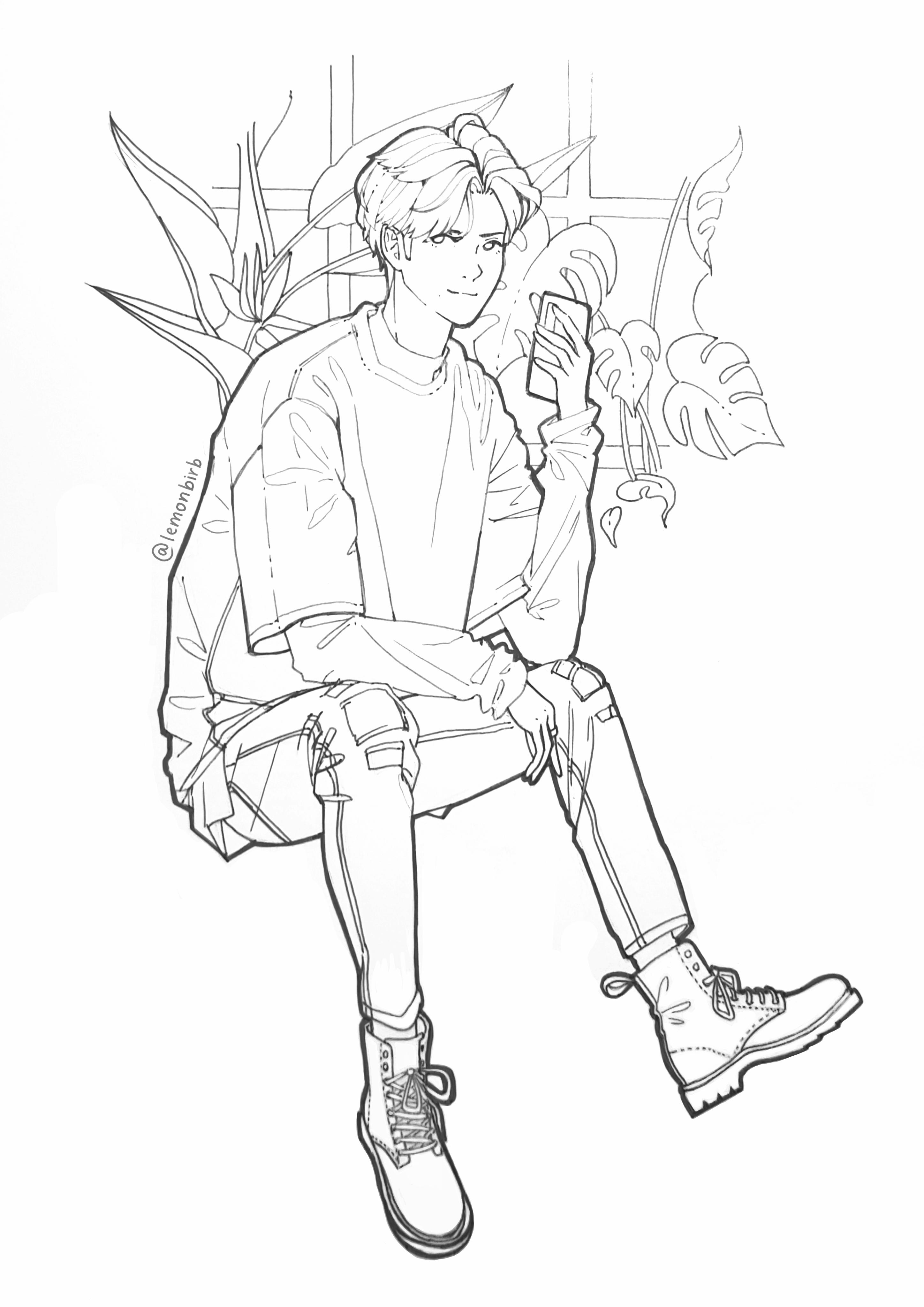
13 minute read
The Productivity Paradox: Entering 006 the Media Industry Nidhi Daithankar 009 009. Brink and Scrawl Liana Charles
By Nidhi Daithankar
Just take one look at my current search history, and you’ll find hundreds of ‘How to Choose a Fulfilling Career’ articles that I’ve sifted through in my 2am delirium in recent months.
For me, graduating always seemed like a distant event in the unforeseeable future. We have A.I. Instagram influencers (Lil Miquela anyone?), phones with storage the size of laptops, and an immersive online world that has truly transformed the course of life. But actually having to leave school? No, that always seemed far-fetched to me – indeed, if academics have taught me anything it’s been to bask in the comfort of knowing that 30 years later, this one 30% assignment is going to be an infinitely minuscule moment in my life. However, this has since started to evolve into a sort of paradox in my mind – I call it the productivity paradox. In order to reach a point in my life when university goes from the present to just a collection of hand-picked memories, I will have to come to terms with the fact that one day I will have to turn the tassel, so to speak.
My earliest memories of my childhood were in school, where I was told I was a distraction to the class projecting my boredom onto others. My homework would nearly always be returned to me with tedious notes scrawled in the margins or questions marks scattered periodically, but always that one word at the end of my work – “careless”; scribbled in dangerously red, seriously bright, ballpoint. Seeing this word numerous times, my parents attempted to drill into me the age-old rhetoric (in a not-so-nice voice) that “you reap what you sow”.
For seven-year-old me this was just the everyday routine, but after getting older and seeing my parents embody this specific trait I started to seriously panic: when would I learn to actually grow up?
In the South Asian diaspora, a point of commonality between many ethnicities is the culture of filial piety – giving back to your parents the sacrifices they have made for you. This is not so much guilt – tripping as it is learning to show gratitude towards those around you. I grew up in Australia for much of my life, having arrived here as a first-generation migrant thirteen years ago. I personally witnessed the hardships my family went through as they uprooted their everyday life and starting a new one overseas. They did not let the fear of an alien country, a different language and a new job inhibit them; instead, they hid their worries like parents do, pretending that everything is merry. In my head they were Herculean. They persevered their whole life to make something of themselves so they would have something to show back home. Now on the brink of turning 21, my glorification turns into a weight of anxiety that travels with me. I start to worry that as the years go by, while I still struggle to find my place in my chosen communications degree, my parents will grow older without sharing any of my successes with me.
When I look at the social media driven communications industry today, I see such an emphasis on entrepreneurship, freelancing and influencing. And while I genuinely do appreciate how those industries that were once considered niche help cultivate a new online culture, I can’t help but question our unending obsession with efficiency, productivity and the rhetoric of ‘maximising opportunities’. What led me to this curiosity was when I really started to notice the small differences between university and the outside world. At university, we were always taught to create ethical and innovative content that pushed the boundaries of conversation. However, the growth of the online world of 2020 revealed to me a harsher reality: that public trust has always been a commodity.
Today, social media is constantly infiltrated by native advertising where the lines between real and performative are blurred, convincing us to buy certain products in subtle ways. Instagram influencers brand themselves as lifestyle content bloggers, often showcasing brand partnership products to convince their followers of their value and aesthetic but offering little evidence of their actual use. Even the monopoly on the news industry makes you question the agenda behind certain stories and how they try to shape your understanding of the world. And so, sometimes I fear that the pressures of ‘making it’ in the media industry are erasing our creativity and passion as we scramble to stock up on a 6 figure bank statement to prepare for the hypothetical future. Now with graduation looming over my head, I find myself walking a fine line between searching for a successful career in a world that has lost its glamour for me, or not living up to my full potential that my parents have always believed I have.
This is not to say that university graduates should be disillusioned upon entering the media industry. Social media has helped jumpstart some great initiatives such as sustainably driven small businesses, educational content about personal budgeting, and art and fashion career education that did not exist 10 years ago. However, with the traditional 9 to 5 slowly transforming into a ’whenever you’re needed’ schedule, it does make me question the obligation we feel to constantly be switched on. If it is true that if you persevere you shall prosper, then maybe it is time for me to just start my post-graduation journey and see where it takes me.
Nidhi is a third year Bachelor of Media student who is curious about how the comms industry will evolve in the next 5 years. When she is not busy exploring the cultural dilemmas of growing up in a South Asian household or contemplating when travel will start up again, you can find her dabbling in art, music, and dance.
PARASITE
By Juliet Manolias
Over fifty species of cuckoo are brood parasites. They lay their eggs in another bird’s nest and fly back home, while their non-cuckoo hosts are left to do all the work. The resulting chick is demanding. It quickly outgrows its foster parents in size, volume, appetite. It’s a wonder how they keep up, forced into such a foreign situation, with no escape from the strict rules outlined by parental instinct. Are they stressed? I feel stressed just watching them. The shrill cries of the cuckoo chick can be heard from all corners of my house and I am reminded of how powerless I am in the world.
I don’t believe that the host parents would harbour any kind of resentment towards the chick. I try to be aware of when animals are anthropomorphised to such an extreme degree, something that already occurs far too much for my liking. We say that they symbolise freedom, only because they can fly, but a bird is no freer than any other animal. They do what their instincts tell them to do. For the adult cuckoos, their instincts form a path of freedom. The host birds are trapped. But they don’t feel trapped, and the cuckoos don’t genuinely unburden themselves – this would require change, but none has occurred. One pair of birds continues to rear young, while the other consistently avoids doing so. I will not misrepresent these actions through the twisted lens of our ideals. I refuse to romanticise.
Instead, I stare. Every spring, a pair of cuckoos migrate here, where I assume they were born, and begin the ordeal of sneaking their eggs into the nests of local birds. My stomach churns. I listen to how they scream louder than any other bird here, as the currawongs, the miners, the magpies, in a feat of aerial magnificence, fuelled by a fearful, instinctual frenzy, mob the cuckoos in their desperate attempts to keep them away from their nests. I wonder how much they know about the cuckoos, the future they might bring. I love my local birds, and part of me wants to hate the cuckoos. Hate them for the panic they cause, the potential lives they take away to replace with more of their own. I know that I am lucky to be able to bear witness to such complex forces of nature in my own backyard. After all, it only happens a few weeks of the year. But the battle of empathies that takes place within me is too much to bear. There is no universe in which both parties succeed. All I can do is stare.
When I go back inside, my thoughts follow me. I long to be the migratory cuckoo, free to do as I please, but I will never grow past being the chick. Limited by overwhelming needs I can’t control, forever helpless. Needing help isn’t a bad thing, but I’ve struggled to convince myself of that fact. The bigger fear is the thought of leaving university, becoming the host parent desperately trying to live up to the pressures that have been placed upon me, while still being the same baby bird. No real control over the people and circumstances I face, fully aware that this freedom I’m told to look forward to is nothing more than an illusion. I can never live completely free of my burdens. I can only hope that it gets easier.
Juliet is a Science/Arts student who likes to combine her autofictive style with her interest in biology. Her need to finish creative works quickly has combined with a lack of an ability to complete large personal projects, resulting in a habit of writing microfiction. She is also a visual artist and hopes to work all three of these interests into parts of her career
BRINK
Life, stretching its wings in two sunbound arcs from the heart, cuts loose the clear breeze which whips and whirls the world to sing one high note: a dart to crack the crust of childhood’s freeze.
Breathe in, and step out, for down below the soft world wakes. Each fresh fingertip yearns to trace the dawn’s joyous shout; Each feathered heart aches to break the last of the past’s dull grip.
Embrace the first flight as freedom shines away the haze which muffled the truth. Cry the glory of morning light soaring to bolder days: behold the weightlessness of youth. (On graduating high school, six years ago, over the year before university) Freedom is the fact that I can look down at this pen and this ink and this scrawl and think ‘yes I will let someone read this I will let someone think it is good it is true’ it is walking down my street at dusk and feeling my shoulders lift with purpose and strangers saying ‘oh you look so much like your mother’ and saying ‘yes I am my mother’s daughter’ with my father smiling at us and myself in the mirror as someone I would like to meet and at the end of school they said I was ‘nice’ and at the end of university they say I am ‘quirky’ and this difference is the soul I have carved like in the story I read once where each soul is a shape with a symbol inside and my shape is a circle and my symbol is a heart as twee as that is for I will put people first and I will not apologise and I will put myself first and I will not apologise and this is the end of the page but I will write myself into the earth my skin the sky forever
(On graduating university, almost drunk, 2:45am)
SCRAWL
Liana Charles
Since age seven, Liana has been keeping a diary in her own secret code: atrocious handwriting. Occasionally she looks back and deciphers enough to pick out a narrative and form a story, usually about travel and missed connections. Other writing includes poetry and short fiction.

LILLY
By Phoebe Au
Soft, frail and pretty, she lies there, wilting behind my father’s window.
She was in bloom once, plucked from a lush green meadow, severed from her roots.
Leaves, like green wings, clipped. Her cries, hastily stifled. Stems, violently snapped.
Unable to speak. A windowsill ornament, unable to scream.
Left to watch the street beyond the glass. They stare at her fragile beauty.
Her head bows further. Submission, she’s told, is an act of survival.
Away from the glass, she has turned her Maidenhead, lest she dare hope for

To Phoebe, writing has always been an important creative outlet and medium for self expression. Her work is heavily inspired by paintings and personal experiences.

Nina started writing when she was 8 years old and didn’t really stop. Her first work was an auto-fiction series on an accident-prone girl who stood up to bullies. It will never see the light of day. What will is her writing about magical witches and mercenaries. That’s what makes her happy.
THE SNOWY RANGES
By Nina Greenhill
To the place that calls me, where my heart finally beats, where my breath returns steady; where the quiet is real and strain is gone, where my self will rest, where my soul will live on.
It has my love free from duress. It waits and understands. It will call, and it will hope that I will trek back, that I will move tracing down its snowy track.
It is a silent affair twixt mountain and I, an understanding one - steady and constant. It is a place I withdraw into though hundreds of kilometres away.
It is an ancient being, the mountain itself. It is a place where one can exist entirely as oneself. It calls for those who will watch from the summit, who will sit and enjoy it. It is a place, nothing more and nothing less: it is crisp and it is cold and it sunburns terribly, but it sits and it lasts and it gives. It gives so much.
It is an environment to be feared and to be fearless. It is one to relish the peace, the solitude, the utter acceptance of those who take its way of life.
It summons strength and you push through.
Fresher air one can never find if one is not in the highland winds.
The bond of the mountain comes from the beginning of time but only those open to it will understand the moment where the meaning of life is clear.
I find it at the top of the double chair lift when strapping my board, my skis, my helmet.
The steps I take are these:
1. Sit
2. Take a breath
3. Fix your goggles and look around, the majesty over the drop, the rescinding ranges, the broken chain of mountains
4. Breathe. Repeat steps two and three until you throttle down the slope again.
5. Go down the ignored wonder of the world.
6. Get on the lift and do it again.
The meaning of life then is to be, and to one who is up on the mountain, to that one, being is enough.
Living is simple - breathe in, breathe out.
On that mountain that calls each day, where rent is steeper than the run, truth evolves. Truth sees and truth breathes. Minds stand still and I can just be. It is the place that calls me, where my heart is beating, where I can breathe steady, where I can finally be quiet and everything loosens - where my thoughts just stop.
It is where my self is resting and where my soul lives on.




